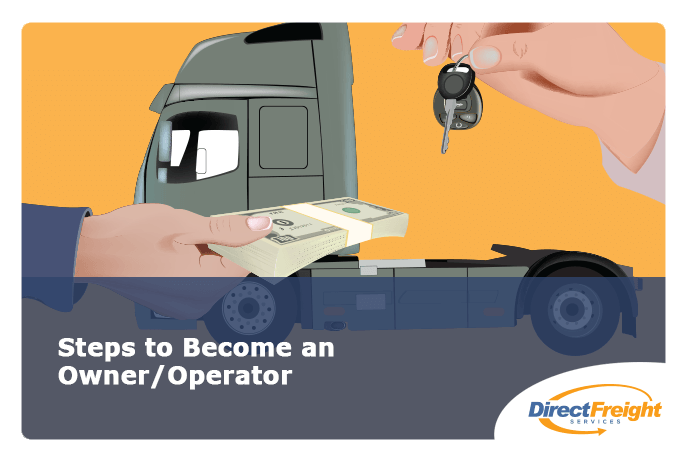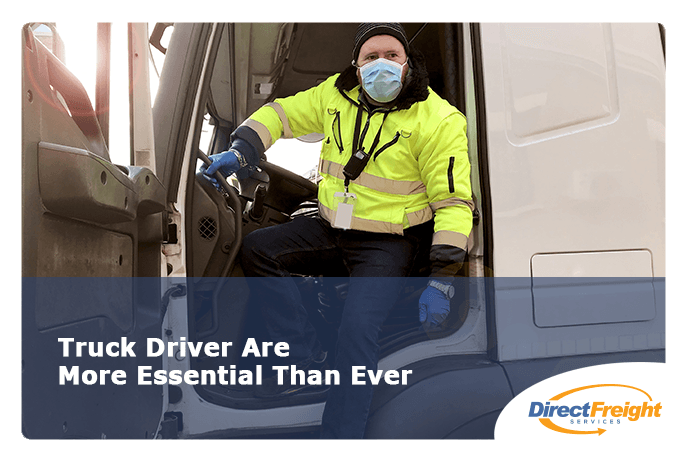To buy a truck or work for a carrier as part of their fleet is an essential question most truck drivers ask themselves at some point in their careers. Both options have pros and cons and either choice could be a good career choice.
Advantages to Working For a Carrier:
- The truck belongs to the carrier, and associated costs and maintenance are their responsibility.
- Benefits like group health insurance and paid vacation time.
- There’s less financial risk.
- Less worry. Your job ends when you’re done driving.
- No overhead. The money you earn is the money you get. No need to pay for repairs, maintenance, etc.
- It’s easier to quit your job to find a more suitable company.
- No start-up costs other than your CDL. Just get in the truck and go.
Advantages of Becoming an Owner/operator:
- More flexible schedule.
- While it’s not always the case, there is a potential to earn more money.
- Built-up equity in your truck.
- Not sharing a truck with other drivers. Some companies do this and you may be left cleaning up after someone else.
- You’re your own boss.
- There could be tax advantages.
- The truck is customized to your liking.
- More choice of loads.
There is no right answer to the question, only what is right for you. Do you want to be your own boss with all of the responsibilities that go along with it or do you prefer the security of working for someone else?
Becoming an Owner/Operator
Before taking the steps to become an owner/operator, take the time to examine the pros and cons of each. It’s a huge financial step. There’s nothing wrong with spending your career working for someone else. Once you’re sure you want your own truck, you can begin taking steps to make it happen.
Obtain your CDL. You need that for the operator part of becoming an Owner/Operator. Some people pay for their CDL by taking advantage of programs that some carriers have where they pay for your CDL as long as you agree to work for them for a specified time period. If you do this, you’ll have to meet those obligations before becoming your own boss.
Get Money. Any business needs start-up money and yours will mainly be for buying a truck. If you don’t have the money, you can take out a loan or lease a truck.
Get Licensed and Registered. If you plan to operate as an interstate (across state lines) carrier you will need a USDOT number to transport cargo. You can obtain a USDOT number by registering online through the Unified Registration Program on FMCSA’s (Federal Motor Carrier Safety Administration) website. You most likely will also be required to have an MC number which is your authority to operate, also found at FMCSA. There is a one-time filing fee of $300. Depending on the weight of your truck, you may be responsible for paying the Heavy Vehicle Use Tax. More details can be found here.
Get Insured. The FMCSA not only requires insurance, but it also requires different types of insurance depending on your load, i.e. hazardous, etc. Of course, if you are planning on hauling hazardous materials, you must obtain a special endorsement for your CDL too.
Find Loads. Once you’re legitimate and ready to roll, how do you get loads? A good load board can help you find lucrative loads that will help your business get off the ground. You can search by type of load and region, and because you’re in it to make money and not drive around an empty trailer, load boards can help you fill those deadhead miles to maximize your profits.
Becoming an owner/operator isn’t for everybody. It’s definitely something that you have to be in it for the long haul, so to speak. If you have what it takes, owning and operating your own truck can be a profitable and rewarding career choice.
If you’ve decided to become an owner/operator, Direct Freight Services is the only load board you’ll need. Direct Freight is a full-service load board that allows truckers to find loads and companies to post their available loads. The Direct Freight website also has many useful features such as a mobile app, credit reports and scores, mile calculators, fuel price data, weather conditions, turn-by-turn truck-specific routing, and more. To see everything Direct Freight has to offer Owner/Operators, go to DirectFreight.com today!
Sources:
https://www.fmcsa.dot.gov/registration
https://www.fmcsa.dot.gov/registration/get-mc-number-authority-operate
https://www.fhwa.dot.gov/policyinformation/hvut/mod1/whatishvut.cfm











